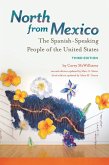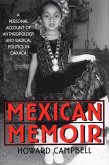Providing in-depth coverage of the Mexican American population from social, cultural, and psychological (clinical) perspectives, this book promotes the understanding of cultural practices and sociological characteristics of this important ethnic group.
There are now more than 32 million Mexican Americans living in the United States. As a result, the odds that a clinician will work with a member of this population-one of the fastest-growing minority groups in the United States-is extremely high. Understanding the culture, society, psyche, acculturation, assimilation, and linguistics specific to Mexican Americans, as well as their crises and appropriate interventions, is imperative to provide counseling/therapy services and culturally sensitive assessments.
In this book, author Mario Tovar explains how Mexican American history and society affects the needs of this group and how services to Mexican Americans require adjustments as a result. Tovar documents significant differences among Mexican Americans depending on whether they are documented or undocumented immigrants, and on their place of origin-rural versus urban areas of Mexico, and northern versus southern Mexico, for example. Readers will understand how the region of the United States in which Mexican Americans settle can influence the development of certain traits for them and learn about mental and physical health care practices common to Mexican Americans, including folk medicine and "healers" who often include grandmothers and elder neighbors.
There are now more than 32 million Mexican Americans living in the United States. As a result, the odds that a clinician will work with a member of this population-one of the fastest-growing minority groups in the United States-is extremely high. Understanding the culture, society, psyche, acculturation, assimilation, and linguistics specific to Mexican Americans, as well as their crises and appropriate interventions, is imperative to provide counseling/therapy services and culturally sensitive assessments.
In this book, author Mario Tovar explains how Mexican American history and society affects the needs of this group and how services to Mexican Americans require adjustments as a result. Tovar documents significant differences among Mexican Americans depending on whether they are documented or undocumented immigrants, and on their place of origin-rural versus urban areas of Mexico, and northern versus southern Mexico, for example. Readers will understand how the region of the United States in which Mexican Americans settle can influence the development of certain traits for them and learn about mental and physical health care practices common to Mexican Americans, including folk medicine and "healers" who often include grandmothers and elder neighbors.









